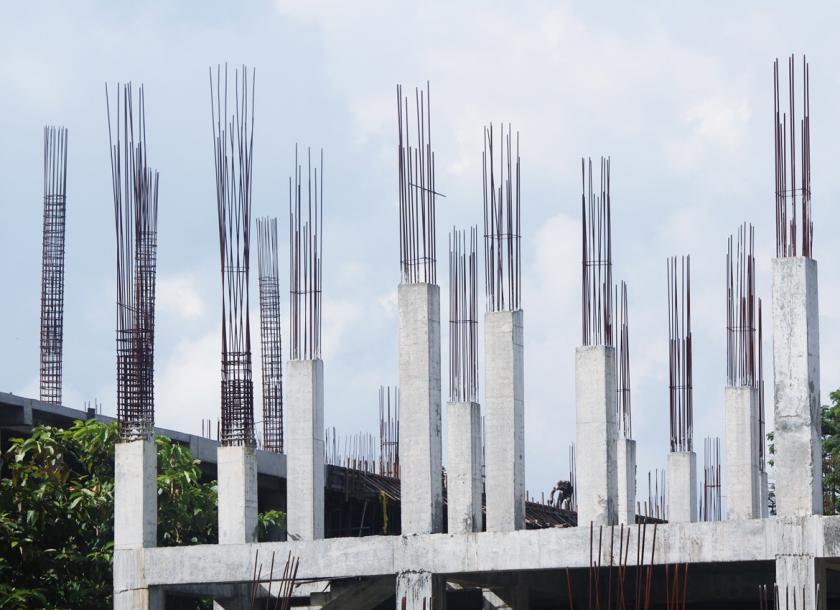Myanmar: Construction sector under threat from high tax, interest rates
Unreasonably high tax and interest rates could lead to the collapse of Mandalay’s already ailing construction sector, U Shein Win, vice chair of the Myanmar Construction Entrepreneur Association (MCEA) told The Myanmar Times last Friday.
Capital gains tax on the sale of a property in Myanmar is currently 30 percent, which is deterring activity in the real estate and construction sectors as it is much higher compared to other countries.
“The high rates have caused construction entrepreneurs to suffer a lot. Sales and purchases of property have become very slow. Operating cash flows have turned negative. If the present situation continues, the construction sector may collapse and come to a standstill,” he said.
“As such, the current laws should be amended or temporarily suspended. The State should reduce the current capital gains tax to 5pc. I guarantee more buying and selling of property is likely and the government may well end up with more tax revenues from both sectors,” he added.
Indeed, with capital gains tax at 15pc in 2015, the government collected K122 billion in tax revenues from the construction sector. Since the tax rate was doubled to 30pc however, tax revenues halved to K65 billion in 2016 and dropped further to just K25 billion in 2017, U Shein Win said.
So far, the MCEA has submitted an appeal to the Ministry of Planning and Finance to cut the current tax rates. Despite having received approval from the Union Minister, it will be some time before it is implemented as it needs to be approved in Parliament, U Shein Win said.
Working capital
Construction businesses have also asked that borrowing rates be lowered to 9pc from 13pc currently and for banks to extend mortgage terms to 20 years from the current 15 to encourage more building and buying. They also called for more transparent declarations of the terms of new construction permits.
“What we expected from the new government was for foreign direct investments into the construction sector to rise because there were no good buildings that served as appropriate accommodation and offices. But this is not happening. Now the Condominium Rules have been released, but they are not convenient for construction businesses,” said U Myo Myint, chair of the Young Developer Association.
In Myanmar, construction businesses are typically supported by retained earnings, FDI, public funds and bank loans. The money is mostly dispersed as working capital for wages, new projects and taxes,” said U Wate, a local developer.
“When funding for a project runs out, workers are likely to be the ones who suffer the most as they have to settle their livelihoods with daily wages. So, if public projects are carried out at a time when the private sector is weak, like now, it will be good for them,” said U Wate.
The other issue is “banks can loan only up to 30pc of the owned assets submitted by the construction company, which makes it difficult to get sufficient financing for big projects,” U Wate said.
Union-level discussions are currently taking place on that front. During a Parliament session last week, MPs asked the Central Bank of Myanmar to reduce the current deposit rate from 8pc to 7 pc and the current borrowing rate from 13 pc to 11pc, saying that the lower rates would help to boost the economy.
In response, local banks have also asked businesses to ensure their financial statements and other relevant documents are in order to increase the likelihood of them receiving a loan.
Source: https://www.mmtimes.com/news/construction-sector-under-threat-high-tax-interest-rates.html


 Thailand
Thailand




